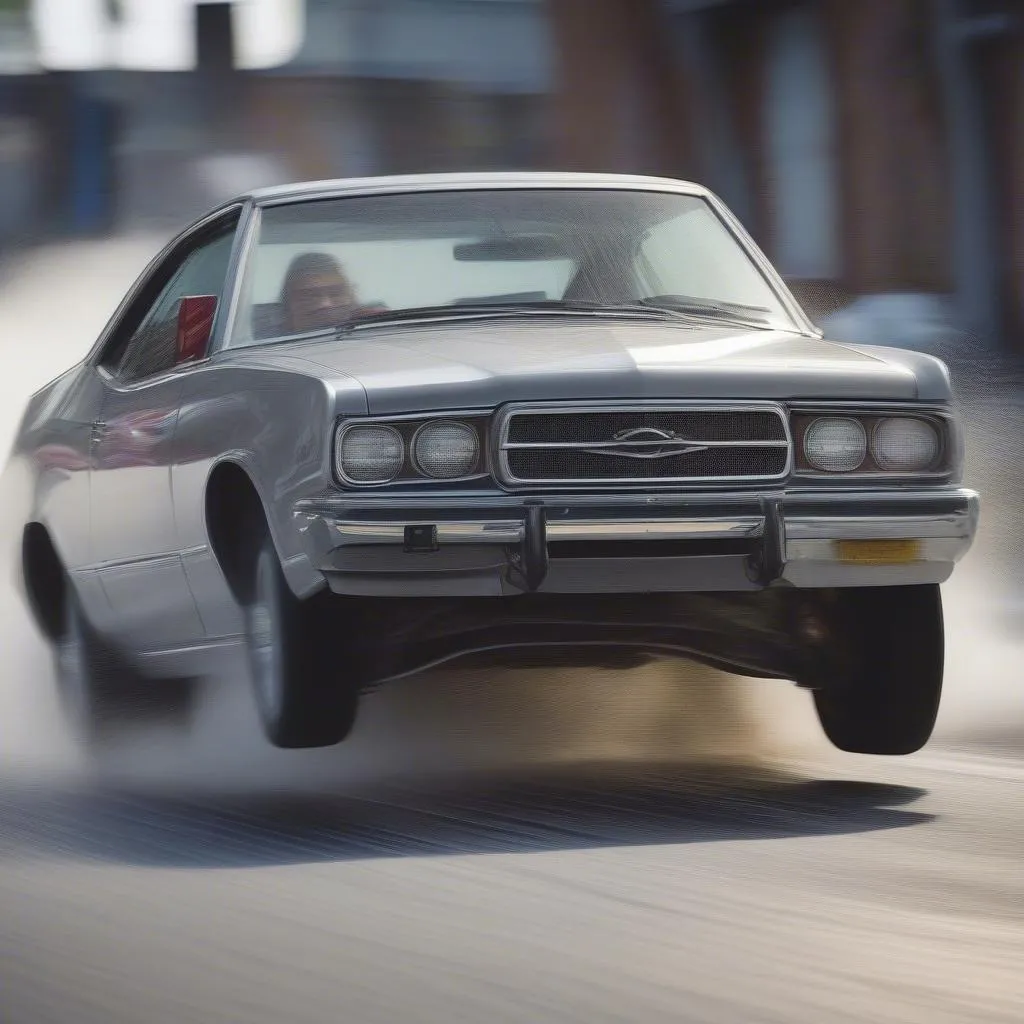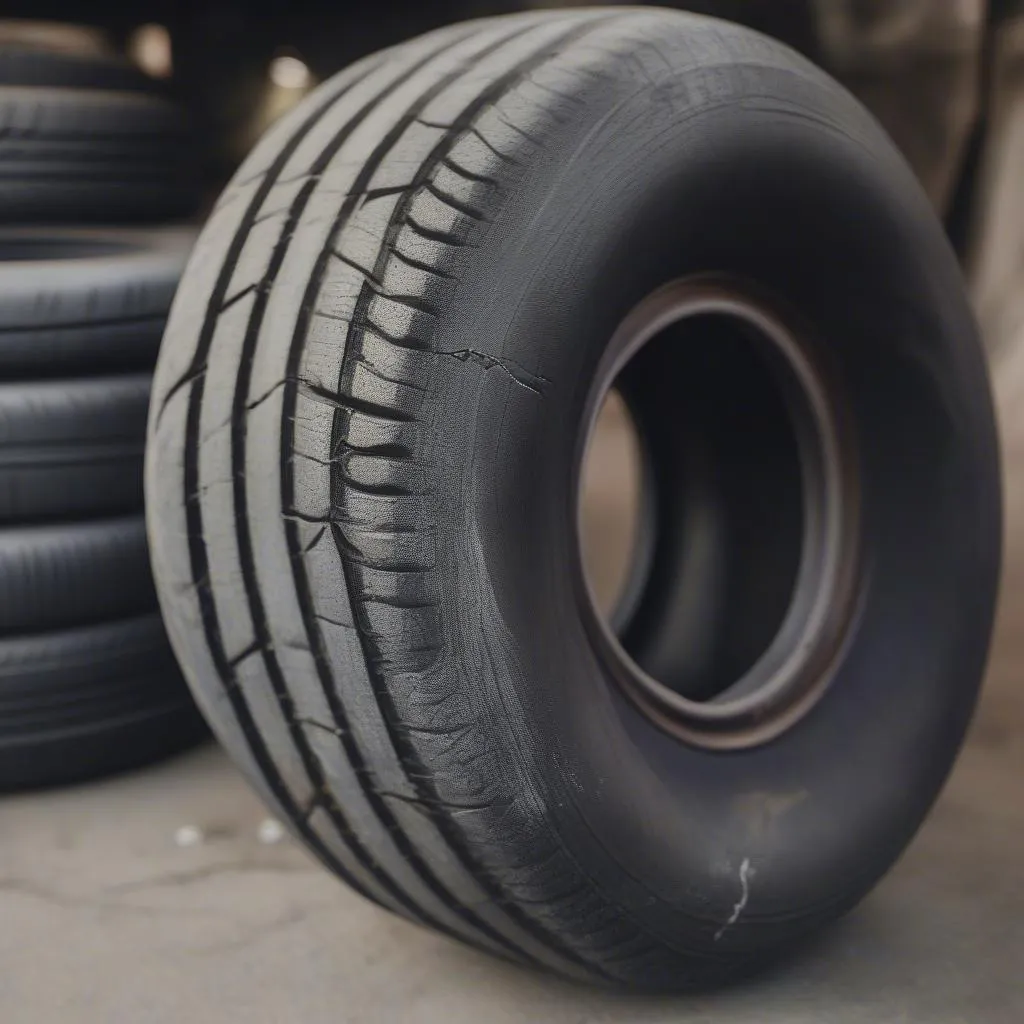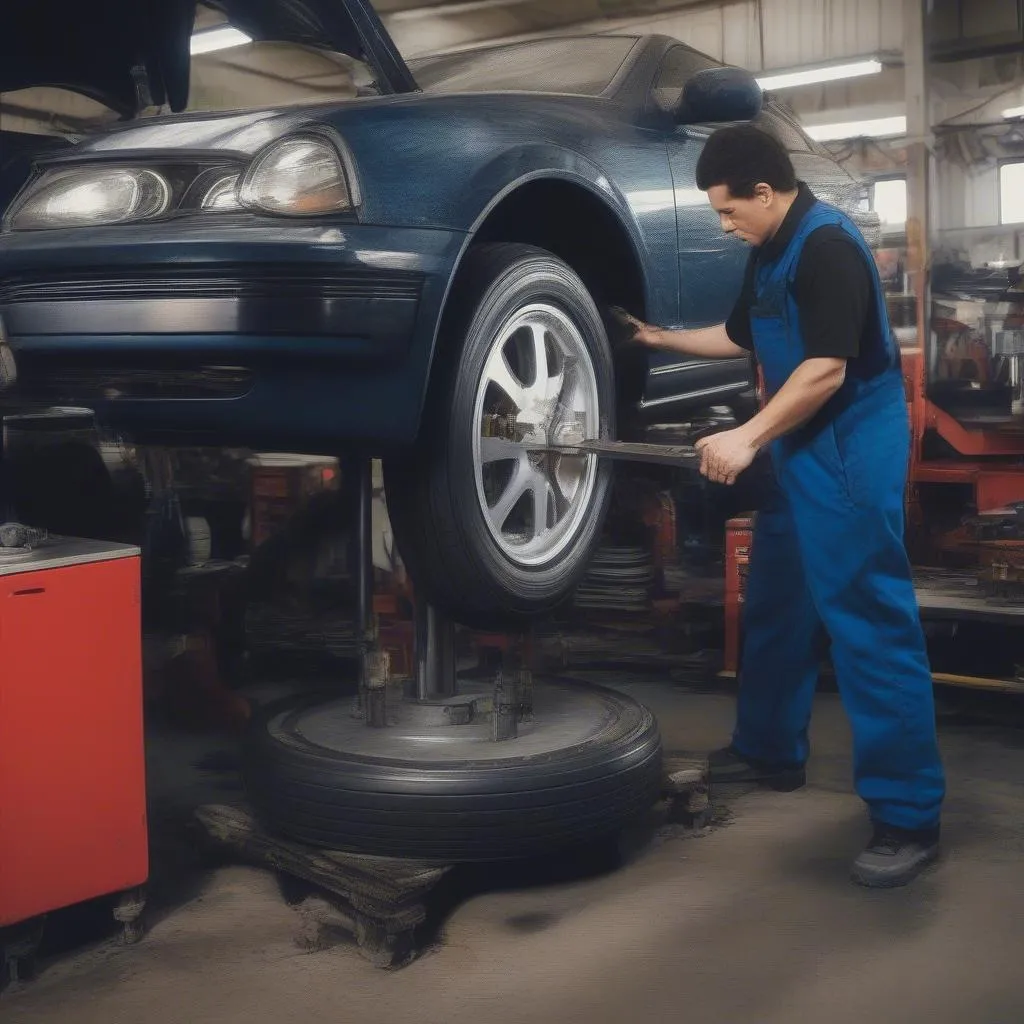Have you ever been driving down the road, feeling confident and in control, only to have your car suddenly start shaking violently when you press on the gas pedal? It’s a terrifying experience, and it can leave you wondering what’s going on under the hood. That’s where we come in. We’ll take you through a journey of understanding why your car shimmies when accelerating, equip you with the knowledge to identify the potential culprits, and guide you towards a solution.
Understanding Car Shimmies During Acceleration
Think of your car’s suspension system as a complex network of interconnected parts designed to absorb shock and maintain stability. When your car shimmies during acceleration, it’s often a sign that this delicate balance has been disrupted. This could be due to various factors, ranging from worn-out tires to more serious mechanical issues.
The “Shimmies” From a Mechanic’s Perspective
From a mechanic’s perspective, a car shimmy during acceleration is a symptom of a problem in the car’s drivetrain, steering, or suspension system. The shimmy is usually caused by a loss of traction between the tires and the road surface, or by a vibration in the drivetrain. “It’s like a domino effect,” says renowned automotive engineer, Dr. Michael Peterson. “One part starts to vibrate, which causes another part to vibrate, and so on, until the whole car is shaking.”
The Technical Side of Shimmies
Technically, a car shimmy is an oscillation or vibration that occurs in the steering wheel, and sometimes the whole vehicle, when accelerating. These vibrations can range from slight tremors to violent shakes, and they’re often accompanied by a feeling of instability.
Why Is My Car Shimmying?
Now, let’s delve into the most common reasons why your car might be experiencing shimmies during acceleration:
1. Worn-Out Tires
The first thing to check is your tires. If your tires are worn, cracked, or have uneven wear patterns, they can lose grip on the road, leading to a shimmy when you accelerate. This is especially true if the tires are not properly inflated. Imagine a tire as a tight drum; if it’s stretched thin, it vibrates more easily.
2. Wheel Balance Issues
Imagine a wheel as a spinning top. If it’s perfectly balanced, it spins smoothly. But, if it’s off balance, it will wobble and vibrate. The same principle applies to your car’s wheels. A wheel imbalance can cause your car to shake, especially when you accelerate or brake.
3. Uneven Tire Pressure
Maintaining correct tire pressure is crucial for optimal performance and safety. Uneven tire pressure can lead to excessive wear and tear on your tires, resulting in a shimmy when you accelerate.
4. Bent or Damaged Wheels
If your car’s wheels are bent or damaged, they can wobble as they rotate, leading to a shimmy.
5. Suspension Problems
A worn or damaged suspension system can also cause a shimmy when you accelerate. The suspension absorbs shocks and vibrations from the road, and if it’s not working properly, it can’t do its job effectively. Common culprits include:
- Worn-out shock absorbers: These components act as dampers, absorbing vibrations.
- Damaged ball joints: These connect the wheels to the suspension.
- Worn-out tie rod ends: These connect the steering wheel to the wheels.
- Damaged control arm bushings: These help to keep the suspension components in place.
6. Drivetrain Problems
Issues in your car’s drivetrain can also be the culprit.
- Worn-out CV joints: These connect the wheels to the axles and transfer power from the engine to the wheels.
- Damaged axle shafts: These connect the wheels to the transmission.
- Worn-out transmission mounts: These hold the transmission in place.
What To Do When Your Car Shimmies?
1. Safety First!
If your car is shimmying, it’s important to pull over to a safe location and assess the situation. Don’t ignore the problem. Continuing to drive with a shimmy can worsen the problem, potentially leading to a more serious issue.
2. Consult a Professional
The best course of action is to take your car to a trusted mechanic. They’ll be able to inspect your car thoroughly and identify the source of the shimmy.
3. What To Expect
During the diagnosis, the mechanic will likely:
- Inspect your tires: Checking for wear and tear, uneven tire pressure, and any damage.
- Check your wheel balance: This is done using a specialized machine.
- Inspect your suspension: They will examine your shock absorbers, ball joints, tie rod ends, control arm bushings, and other suspension components.
- Inspect your drivetrain: They will check your CV joints, axle shafts, and transmission mounts.
Frequently Asked Questions (FAQs):
Q: Why does my car shimmy only when accelerating?
A: It’s a common misconception that shimmies happen only during acceleration. It can also occur during braking or when you hit a bump.
Q: How do I know if it’s a suspension problem?
A: A mechanic will inspect your suspension system and determine if it needs repair.
Q: What if it’s a drivetrain problem?
A: If the mechanic finds issues in the drivetrain, you’ll need to have the problematic components repaired or replaced.
Q: Will a simple tire rotation solve the problem?
A: A tire rotation might help with uneven tire wear but won’t solve a shimmy caused by other issues.
Q: Why is my car suddenly shimmying after a recent repair?
A: A recent repair might have inadvertently contributed to the problem.
Q: What should I do if the mechanic can’t find the issue?
A: If the mechanic can’t determine the root cause, you might need to consult with a specialist who has expertise in diagnostics.
Can’t Find a Solution?
Contact us! We offer comprehensive diagnostic and repair services for European cars. Our team of experienced technicians is available 24/7 to assist you.
Keep Exploring!
For more insights into car maintenance and repair, check out our other articles:
Let’s Chat!
Have a question about your car? Don’t hesitate to contact us on WhatsApp: +84767531508.
Your Turn!
We’d love to hear your experiences. Have you ever encountered a car shimmy? What did you do to resolve it? Share your stories in the comments below!
 Car Shimmy When Accelerating
Car Shimmy When Accelerating
 Worn Out Tires
Worn Out Tires
 Wheel Balance
Wheel Balance